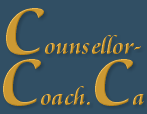Articles
Shame:
The Emotion that Runs Us
and Ruins Relationships
By Peter S. Silin, MSW, RSW
Shame is one of what are called the core emotions, meaning it is one of the basic emotions that humans feel. Although people often do not recognize it in themselves, shame is an underlying drive for many of the things they do and say and for many of the patterns they develop in relationships. Understanding more about shame and it’s role in one’s life is the beginning of being able to face and overcome it. Facing it is often a crucial component to change and inner peace.
Shame is closely related to, or the result of, guilt. Whereas guilt is about our actions-- what we do, have done, or will do shame is about who we are. It is a message that we have learned and integrated, sometimes from very early on in our lives, about our value, worth and lovability. Shame says, I am not good enough, I am not loveable, I am not ok. The process by which guilt can lead to shame can be for example “I have done (something) bad, this shows that I am not a good person/loveable.”
The development of shame often happens through the attachment and separation process between children and parents/caregivers occurring at a very young age. When the relationship with parents or caregivers is difficult or ambiguous, shame can result. It can also occur through trauma, when a child feels abandoned or has been sexually abused. In their world, the only way they can make sense of what has happened is to blame themselves. For example, if a parent goes away, the child may think they did something wrong. If a parent is angry, the child may think it is his fault. The same process can happen as people get older and traumatic events occur. For instance if they are sexually abused or raped and they may believe they could have prevented or was their fault (guilt), and they blame themselves (shame).
Even later in life, guilt can trigger shame. For example when a caregiver has to make a decision that they no longer can care for an aging parent or spouse, the decision to use a nursing home can bring on powerful guilt that triggers shame. They may think “if only I were stronger,” or “ I have failed.” The degree to which that shame occurs can sometimes be due to shame and relationships that have been part of a person throughout their lives.
Repressed shame is usually expressed in indirect ways, for example as anger or boasting. It may be behind a personality that appears to be rigid or judgmental. The belief is that if someone “what I am really like” or “what happened to me” they would not be accepted. Shame may be unrecognized because it is buried so deeply from a conscious feeling state. The more shame is cut off, unrecognized, and not dealt with, the more powerful it becomes in running us. It can generalize—that is, go from being about a single event to being about the person in total.
Shame is one of the most painful and difficult emotions to deal with. The expression “I could have died of embarrassment” is testimony to its power; at some level, people are afraid that the pain of it really will kill them. In order to deal with it, or even recognize it, people need to feel that they are in a psychologically safe place. They may need help and encouragement to begin to examine it and the experiences which led to it. Counselling is one of the places that this can happen and with a therapist that someone comes to trust.
When someone has the courage to feel painful core emotions, they learn that the truth about themselves is different from the one that they believe. People can learn that they are not bad, or unlovable, or that what happened is not their fault. Healing begins when they can come to see that they are acceptable and loveable. Sometimes what they have to do is take a leap of faith and believe that someone does care about them—their therapist is often the first one that they will try this with. They dare to trust and with the trust and what they learn, a greater trust is built, one in which they come to feel secure about who they are.
Shame can also be faced in relationships. When one person in a relationship can risk admitting to their significant other unexpressed feelings, fears, and insecurities, and find acceptance, they begin to heal from their pain. At the same time, when a partner hears what is underlying the other’s actions, and what is in their mind and heart, they can begin to be more supportive and in turn be less judgmental, distant and angry. Instead of being pushed away by anger, hostility, or coldness, they experience their partner as a vulnerable person who is inviting them in; a new pattern in the relationship can develop. As people learn they can trust their partner they risk more often being their authentic self, and showing who they really are. It is a process that is done on both sides, and the result is a relationship where loneliness and fear are replaced with caring, and intimacy.
>> back to the articles index page
How To Contact Us |
|
| Tel: 778-885-5695 Fax: 604-874-7725 |
|
| Email:info@counsellor-coach.ca | |
288 West 8th Ave,. Vancouver, Canada V5Y 1N5
=> click here to view map <=
|

